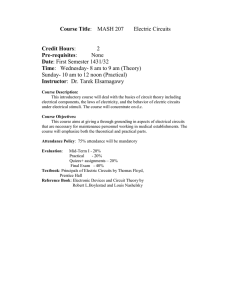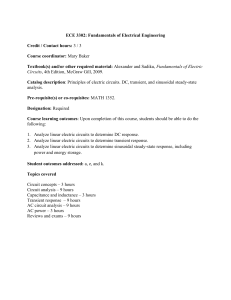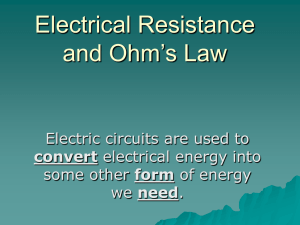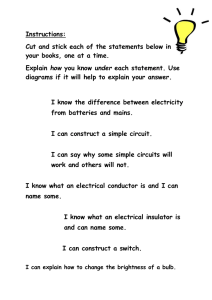Syllabus
advertisement
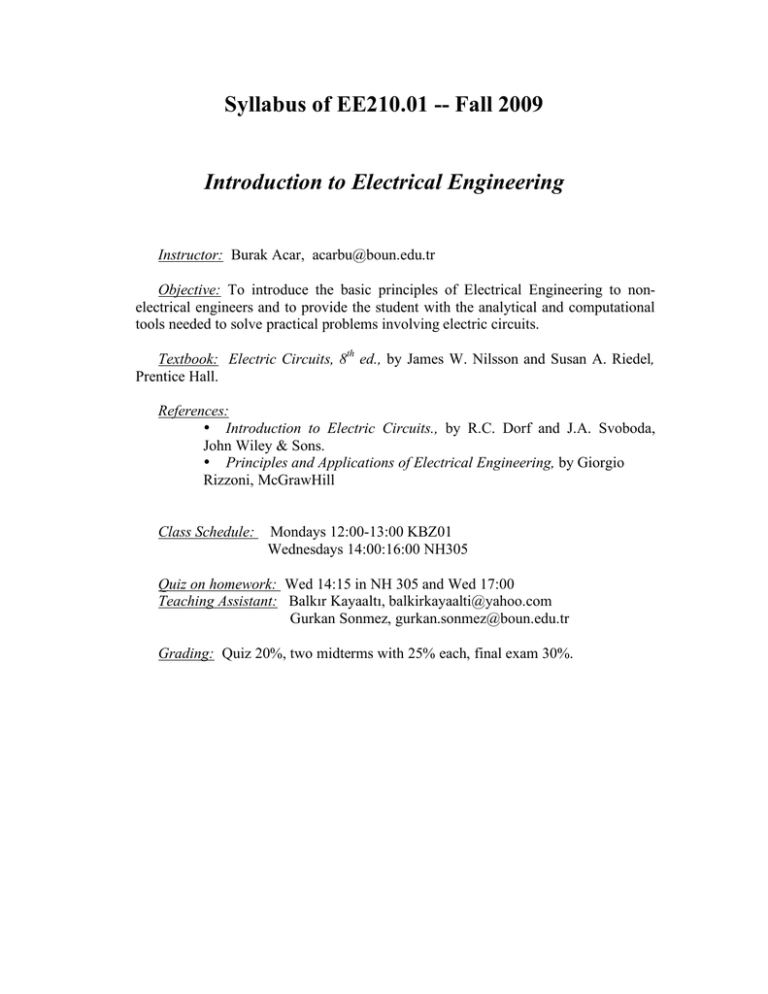
Syllabus of EE210.01 -- Fall 2009 Introduction to Electrical Engineering Instructor: Burak Acar, acarbu@boun.edu.tr Objective: To introduce the basic principles of Electrical Engineering to nonelectrical engineers and to provide the student with the analytical and computational tools needed to solve practical problems involving electric circuits. Textbook: Electric Circuits, 8th ed., by James W. Nilsson and Susan A. Riedel, Prentice Hall. References: • Introduction to Electric Circuits., by R.C. Dorf and J.A. Svoboda, John Wiley & Sons. • Principles and Applications of Electrical Engineering, by Giorgio Rizzoni, McGrawHill Class Schedule: Mondays 12:00-13:00 KBZ01 Wednesdays 14:00:16:00 NH305 Quiz on homework: Wed 14:15 in NH 305 and Wed 17:00 Teaching Assistant: Balkır Kayaaltı, balkirkayaalti@yahoo.com Gurkan Sonmez, gurkan.sonmez@boun.edu.tr Grading: Quiz 20%, two midterms with 25% each, final exam 30%. Course Outline Lectures will generally follow the textbook material. The schedule given below is only approximate. Week 1 Lect Topic 1-2 Basic concepts of electrical engineering. Circuit variables and elements. Ohm's law, power and energy 1.1-1.6 3-4 2 Reading Ohm's law, resistive circuit analysis, Kirchoff's laws, 2.1-3.7 parallel, series resistances, current voltage measurement techniques Circuit conversions, Circuit analysis with node voltage 4.1-4.8 method. Circuit analysis with mesh current method. 3 5-6 4 7-8 5 9-10 6 7 MIDTERM 1 Inductor, capacitor, mutual inductance. Review of linear 11-12 differential equations. 6.1-6.4 8 Response of first order RL and RC circuits General 13-14 response of RL and RC circuits. 7.1-7.7 9 15-16 Natural and step responses of RLC circuits. 10 Sinusoidal steady state analysis, review of complex 17-18 numbers, phasor concept. Circuit analysis with phasors. 9.1-9.12 11 Source transformations, Thévenin and Norton equivalents. Maximum power transfer. Superposition 4.9-4.13 Operational Amplifiers and basic applications. Op-amp 5.1-5.7 circuits 8.1-8.5 12 MIDTERM 2 Sinusoidal steady state power calculation. Power 19-20 calculations and maximum power transfer. 10.1-10.6 13 Balanced three phase circuits. Analysis of delta and wye 21-22 circuits, power calculations. 11.1-11.6
